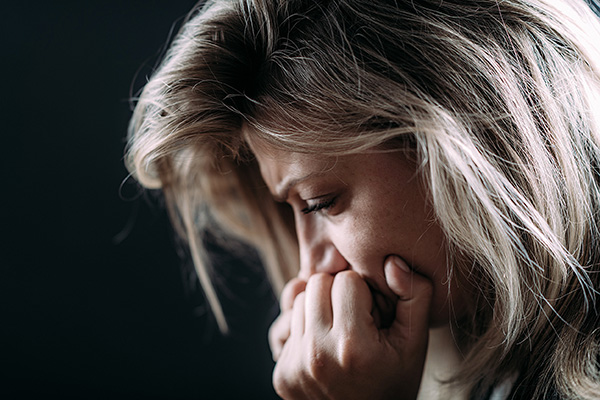Letting Go Of Guilt
 We all like to be seen as good people, and it can be deeply unsettling when others perceive us otherwise. When we find ourselves in a disagreement with a dear friend or colleague and take the blame for something we’re not responsible for, it’s natural to feel unhappy.
We all like to be seen as good people, and it can be deeply unsettling when others perceive us otherwise. When we find ourselves in a disagreement with a dear friend or colleague and take the blame for something we’re not responsible for, it’s natural to feel unhappy.
Spirit teaches that while it’s important to own our actions and the roles we play in conflict, guilt only serves to amplify feelings of remorse. If we allow guilt to fester, we may begin to believe that we are “bad” people who do not deserve happiness and success.
This is far from the truth. We are human, and human beings have the ability to change. Our actions may not always be right, but that doesn’t mean we are inherently bad or deserving of punishment.
Making mistakes is part of being human, and sometimes we need to adjust our responses, especially in challenging situations, in order to grow and improve. Spirit suggests that this is a much healthier perspective.
However, taking this “healthy approach” is often easier said than done. We’ve grown up in a world where elders, peers, and society define what is good and bad – even when they’re not always right. This can lead us to judge ourselves harshly and feel unnecessary guilt.
Many traditional spiritual teachings emphasize the importance of forgiveness, both of oneself and of others. In Christianity, for example, the concept of repentance is central; believers are encouraged to confess their sins, seek divine forgiveness, and then release their guilt, trusting that God’s grace has absolved them.
Guilt is a useless feeling. It’s never enough to make you change direction – only enough to make you useless ~ Daniel Nayeri
Buddhism distinguishes between remorse and guilt. Remorse is seen as a healthy response to harmful actions, leading to a desire to make amends and prevent repetition. Guilt, on the other hand, is often self-destructive and inhibits personal growth. Cultivating compassion for oneself and others is a core Buddhist practice. In essence, Buddhism offers a path to healing guilt by shifting the focus from self-blame to understanding, learning, and growth.
Esoteric traditions often approach guilt in terms of energy and consciousness. These teachings suggest that guilt is a low vibrational energy that hinders spiritual growth and blocks positive manifestations. Holding onto guilt can attract more negativity into one’s life by lowering one’s vibrational frequency. The practice of self-compassion, self-forgiveness, and guilt release is therefore essential to raising one’s vibration and aligning with higher, more positive energies.
So, how do we release our guilt? Consider the following guidelines.
Acknowledgment
It’s okay to feel guilty; it’s a normal human emotion. Pinpoint the specific event or action causing guilt. If you’ve made a mistake, it’s important to take responsibility and sincerely regret it, but don’t let the regret undermine your self-worth.
Own up to your actions without excessive self-blame. Acknowledge the mistake, commit to not repeating it, and use that commitment to strengthen yourself. This approach will leave you feeling optimistic and in control of your growth.
Self-Reflection
To gently release guilt and avoid feeling overwhelmed, reflect on the lesson you’ve learned from the situation. Use the experience as a stepping stone for personal development. If you’re afraid of repeating the same mistake, think about how you can act differently next time. Question the intensity of your guilt. Is it proportional to the situation?
These reflections will help you positively influence your future and turn a negative experience into a valuable learning opportunity. Embrace the idea that you are a work in progress, and every step you take toward self-improvement is a step toward a guilt free life.
Amends
If you feel the need to apologize, then do it sincerely. As you learn to forgive others, you also learn to forgive yourself. However, if your apology isn’t accepted, understand that this is their problem, not yours. Your expression of regret is enough; dwelling on their response only adds unnecessary weight to your guilt. If you can rectify the situation, do so. If amends aren’t possible, focus on what you can control.
We see our sins reflected everywhere: in the pallor of our intimates’ faces, in the scratching of tree branches against windows, in the strange movements of everyday objects ~ Anna Godbersen
Self-Compassion
Being kind to yourself is essential. Talk to yourself as you would a friend and avoid self-criticism. Replace negative self-talk with positive affirmations. Everyone makes mistakes; it’s part of being human. Self-kindness will in turn help you to be kind to others.
Compassion is the antidote to guilt; where there is compassion, there is no room for guilt, for compassion is free of judgment. Recognize that everyone makes mistakes, and growth comes from acknowledging and learning from them, not from punishing yourself.
Guilt, like worry, is a negative emotion that can block your progress. But feeling guilt doesn’t make you a negative person. Many people use guilt as a reason to deny themselves happiness, often out of fear of what others will think. Remember that in order to help others find happiness, you must first find happiness within yourself. Letting go of guilt is a crucial step on that journey.
Manifestation
It’s important to release guilt for the sake of manifestation. If you’re familiar with the Law of Attraction, you know that attracting what you want and deserve depends on your beliefs. Unresolved guilt can lead to the belief that you don’t deserve happiness or abundance, which sends the wrong message to the Universe. The Universe reflects back what we believe we deserve, so it’s crucial to release any guilt in order to attract positive results.
Support and Guidance
Sometimes letting go of guilt can be challenging to accomplish alone alone. Don’t hesitate to seek support from trusted friends, mentors, or spiritual advisors who can provide perspective and help you navigate your emotions. Sharing your feelings can lighten the burden and offer new insights into your situation.
By integrating these strategies into your life, you can gradually let go of guilt and embrace a more positive, self-compassionate mindset, paving the way for a fulfilling and guilt-free life. Guilt is a heavy burden that dims our light. Release it, forgive yourself, and rise with compassion. Your journey is about learning, not perfection.
|
|

Leave a Reply